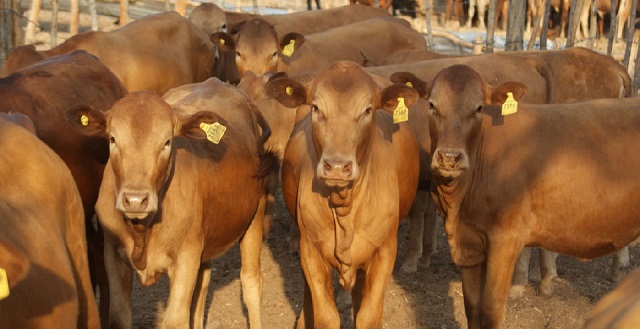
The Sunday News

Mhlupheki Dube
THE Government has been on song with command livestock giving a number of smallholder farmers heifers and cows to build their herds.
The latest beneficiary province being farmers from Matabeleland North. This is without doubt a reason for celebration. I strongly feel that it’s about time private players within the livestock players took an active role and drive important interventions within the livestock sector such as breed improvement.
I am alive to the fact that there is private sector co-operation with the Command Livestock Programme but there is still a very wide scope for more private players. It is time such players as abattoir operators began making deliberate investment in breed improvement in communities.
These are the recipients of the poor quality animals from most smallholder farmers. It is absolutely in the interest of abattoir operators to improve the quality of animals that come to their abattoirs.
After all they are the ones with contracts to supply meat to butcheries, supermarkets and hotels.
One would expect abattoirs through their associations to have a deliberate strategy and action to support communal farmers with bulls for breed improvement, knowing pretty well that the offspring from the bulls will eventually land in their slaughter premises.
It is unexplainable why seed producing companies will go out in full force to market and inject their product into the community as a strategy of growing their businesses while such players as abattoir operators and meat wholesalers do not invest in supporting their producers.
The seed companies even sponsor demonstration plots to promote their seed. It is this kind of active participation of the key private sector players within the livestock value which is missing or is very minimal.
Farmers are basically producing animals for these apex players of the value chain yet there is almost no support from these beneficiaries of the farmers’ sweat.
Abattoirs have an association which they use to lobby the Government for any concerns that they need to have addressed, is it not prudent to use the same association to push bulls into the communities such that in three years they can start benefiting from supply of good quality animals.
We have discussed extensively on this platform that the majority of smallholder farmers cannot afford to buy good quality pedigree bulls individually but they are the holders of the larger chunk of our national herd.
It therefore, goes without contest that something needs to be done to improve the quality of the stock that is held by the majority of farmers.
The association of abattoirs could start by injecting as few as 20 bulls in a district and these districts can be distributed in accordance with the traditional operational zones of the abattoirs.
It is not the intention of this instalment to absolve farmers of their role in personal development of their herds but simply a line of thought that believes that major players in the livestock industries cannot just sit, fold hands and expect to harvest the quality they want from farmers.
There is definitely an active role they should play in breed improvement. Actually a direct interaction of communities with abattoir operators and other apex players within the livestock value chain can help solve the problem of middlemen and help correcting some distortions and myths created by information asymmetry challenges.
It would be nice one day to be invited to a field day where farmers are showcasing steers and heifers or even calves born from bulls which are donated or loaned to a community by an abattoir operator.
There are about four big abattoirs in Bulawayo and its surroundings which translate to a possible 80 bulls if each were to contribute 20 bulls. This will definitely be a good place to start and if such an amount is injected into chosen districts every two years the result could be impressive. Uyabonga umntakaMaKhumalo.
Feedback [email protected]/ cell 0772851275.



